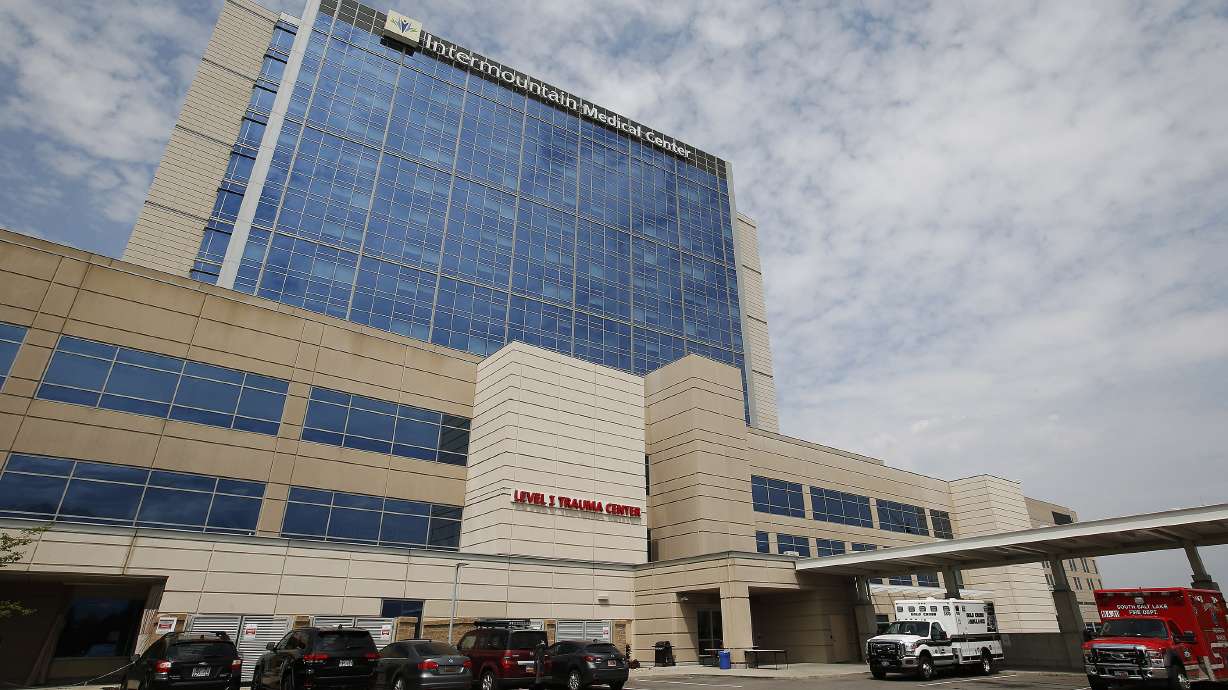Estimated read time: 4-5 minutes
This archived news story is available only for your personal, non-commercial use. Information in the story may be outdated or superseded by additional information. Reading or replaying the story in its archived form does not constitute a republication of the story.
SALT LAKE CITY — After recent headlines said practitioners at Utah’s largest health care system were threatened with pay cuts while on the front lines of the COVID-19 battle, Intermountain Healthcare officials say that’s not the case.
A potential pay adjustment in June would only impact up to one-third of providers who are already on volume-based contracts, Dr. Marc Harrison, Intermountain president and CEO, told KSL on Wednesday.
The way those providers’ contracts are written, if they see a large increase or decrease in volume of work over time, their base pay is adjusted, Harrison said. Many have recently seen their practices cut in half.
The other 1,800 doctors and advanced clinicians — who are on salary contracts and get paid the same regardless of volume — would not be affected, he said.
And planned pay raises from 2019 will still go into effect next week, Harrison noted, but executive leaders are foregoing their pay raises that began this year.
“We became aware that with COVID-19 and with the changes in elective surgeries, etc., that some people were experiencing plummeting volumes in their practices. So about 600 of the 800 people who have volume-based contracts were at risk for really significant decreases in what their contract said they would be paid,” Harrison explained.
Should the pay adjustment happen for those providers, their pay would not go below 85% of their base pay, he said. Whether the adjustments happen, according to Harrison, depends on the state of the economy — the adjustments would be “the worst case scenario.”
Balancing the needs of providers and financial stability of the not-for-profit system is a challenge during this time, he said.
“I have the responsibility both as a clinical leader… and I’m also responsible for our 41,000 people and their families, and their effect on the economy. And this is an important needle to thread,” Harrison said.
Whether canceling elective surgeries to save personal protective equipment — which Intermountain announced before it became a state mandate — is having a large impact on Intermountain financially, it’s too early to know, according to Harrison.
However, it’s definitely “not helping things,” Harrison said. “But Intermountain is fiscally responsible. … We’re here to serve the community, and we’re on a very tight financial show (to) make sure we have good reserves so when things like this happen we can be a forever organization for the community.”
The decision to potentially adjust pay for those on volume-based contracts was made after Intermountain officials held more than 100 small group meetings with clinicians as they worked to “blunt the blow” the system would experience during the pandemic. The potential adjustment received “unanimous support,” according to Harrison.
Related
“There’s nothing rogue about this, this is all very intentional and supported by governing boards,” he said.
Practitioners on volume-based contracts have also been given the opportunity to continue working in other ways, including redeployment to InstaCare or Connect Care as the system works to increase its capacity with demand.
Only a few weeks ago, Connect Care saw visits in the dozens each day. Now, it is seeing demand into the thousands, according to Harrison.
Intermountain has also redeployed other workers as needed throughout the system. They’re being required to adjust to different work, but Harrison says they’re showing “such flexibility and a service-minded approach to things.”
Among those being redeployed, 15 Intermountain nurses have been sent to the Utah Department of Health to assist with epidemiology and contact tracing.
Nearly 9,000 employees worked remotely on Tuesday, including some health care providers who were able to provide telehealth services from their own homes.
The changes, Harrison said, have been mostly met with support.
“It’s quite amazing what we’re learning and how innovative our caregivers are,” he said.
To support those working on the front lines of the battle against COVID-19, Harrison encourages Utahns to “be physically distanced but socially connected to people. And now is not the time to visit folks. Now is not the time for big family dinners.”
“Stay safe, stay home, obey the social distancing rules, and wash your hands. And then I’d say be optimistic. Utah is as an amazing place. I think our culture and our community here is second to none in terms of service to other people.
“And I think having optimism, generosity in our hearts as we work with people and interact with them is really important,” Harrison said.











